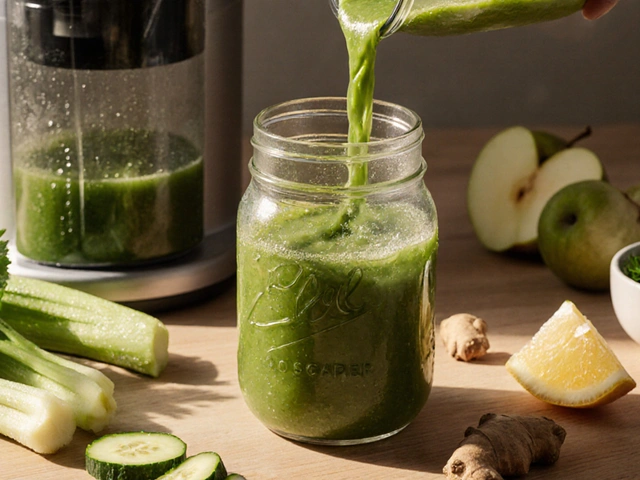Understanding Gut Health and Its Importance
In today's hustle and bustle, it's easy to overlook the foundational role our gut plays in overall health. Beyond its primary function in digestion, the gut is a complex ecosystem home to trillions of microorganisms, collectively known as the microbiome. This microbiome impacts not only our digestive health but also our immune system, mental health, and even the risk of chronic diseases. The symbiotic relationship between these microorganisms and our body underscores the importance of maintaining a balanced gut for overall wellness.
Recent studies have illuminated the concept of the gut as our second brain, connected to the brain via the gut-brain axis. This connection means that the state of our gut can influence our mood, stress levels, and even behavior. It's fascinating to think about how a healthy gut can contribute to a happier, more resilient us. Conversely, an imbalanced gut flora, or dysbiosis, can be linked to a myriad of health issues, including inflammatory bowel diseases, obesity, and depression.
The Gut Microbiome's Impact on the Body
Every one of us hosts a unique microbiome, shaped by factors such as diet, lifestyle, and environment. This microbial community plays a crucial role in digesting food, producing vitamins, and protecting against harmful pathogens. It's a delicate balance, and when disrupted, can lead to digestive disorders, weakened immunity, and increased inflammation throughout the body. Understanding this complex interplay is key to harnessing our gut health for better overall health outcomes.
It's not only about preventing illness. A thriving gut microbiome can enhance nutrient absorption, ensure efficient metabolism, and even help regulate our weight. The diversity and balance of gut flora are paramount, with a more diverse microbiome often indicating better health. This diversity aids in resilience against invasive pathogens and helps to fine-tune our immune response, striking a balance between being reactive and overreactive, which is essential in preventing autoimmune conditions.
Nurturing Your Gut Health: Diet and Lifestyle Changes
Fortunately, improving our gut health is within reach, starting with diet and lifestyle changes. Incorporating a variety of fiber-rich foods, such as fruits, vegetables, and whole grains, fosters a diverse microbiome. These plant fibers serve as prebiotics, nourishing our gut bacteria. Additionally, fermented foods like yogurt, kefir, and sauerkraut are rich in probiotics, further supporting gut health. It's about creating a gut-friendly environment that encourages beneficial bacteria to thrive.
Beyond diet, lifestyle plays a pivotal role. Regular exercise, adequate sleep, and stress management can all positively affect our gut microbiome. Simple steps, like staying hydrated and minimizing the use of antibiotics, can also make a significant difference. It's a holistic approach, recognizing that our body is an interconnected system, and caring for our gut is caring for our overall health.
The Benefits of Probiotics and Prebiotics
Delving deeper into the realm of probiotics and prebiotics, these compounds are essential allies in maintaining gut health. Probiotics, the beneficial bacteria found in certain foods and supplements, can help restore and maintain the balance of our gut flora. They're especially useful following antibiotic treatment or during digestive upset. Prebiotics, on the other hand, are dietary fibers that feed our existing gut bacteria, promoting their growth and activity.
Integrating probiotics and prebiotics into our diet isn't just about digestive health; it's a step towards enhancing immunity, reducing allergies, and even improving mental health. Research links gut health to reduced anxiety and depression, underscoring the gut-brain connection. It's a compelling reason to consider our gut health in any discussion about mental wellness.
Creating a Gut-Healthy Diet
A gut-healthy diet emphasizes variety and balance. It leans heavily on plant-based foods, rich in fiber and antioxidants, which support a healthy microbiome. Including a mix of probiotic and prebiotic foods ensures that we're not only adding to our bacterial community but also feeding it well. This doesn't mean drastic overnight changes. Small, consistent adjustments, like incorporating more whole foods and reducing processed food intake, can have significant effects.
It's also important to listen to our bodies. Everyone's microbiome is unique, and what works for one person may not for another. Experimenting with different foods and observing how our body responds helps tailor a diet that not only supports our gut health but also our overall well-being.
The Link Between Gut Health and Immunity
The gut is a critical player in our immune system. A significant portion of our immune cells resides in the gut, making it a first line of defense against pathogens. A healthy gut microbiome supports these immune cells, teaching them to differentiate between harmful invaders and benign molecules. This education is crucial in preventing immune overreactions, such as allergies and autoimmune diseases.
By nurturing our gut health, we're directly supporting our body's immune response. This means we're better equipped to fight off infections, reduce inflammation, and even potentially lower our risk of certain cancers. It's a powerful reminder of how interconnected our body's systems are, with gut health playing a central role.
Practical Tips for Enhancing Your Gut Health
Enhancing gut health doesn't have to be complicated. Start with incorporating more fiber and fermented foods into your diet. Aim for regular physical activity, which has been shown to positively impact the diversity and composition of the gut microbiome. Ensure you're getting enough sleep, as sleep deprivation can negatively affect gut health. Finally, consider managing stress through mindfulness practices, as chronic stress can disrupt the gut flora balance.
Remember, improving gut health is a journey, not a one-time effort. By adopting gut-friendly habits and making mindful choices, we can significantly impact our overall health and well-being. It's an investment in our future health, with benefits that extend far beyond the digestive system.






